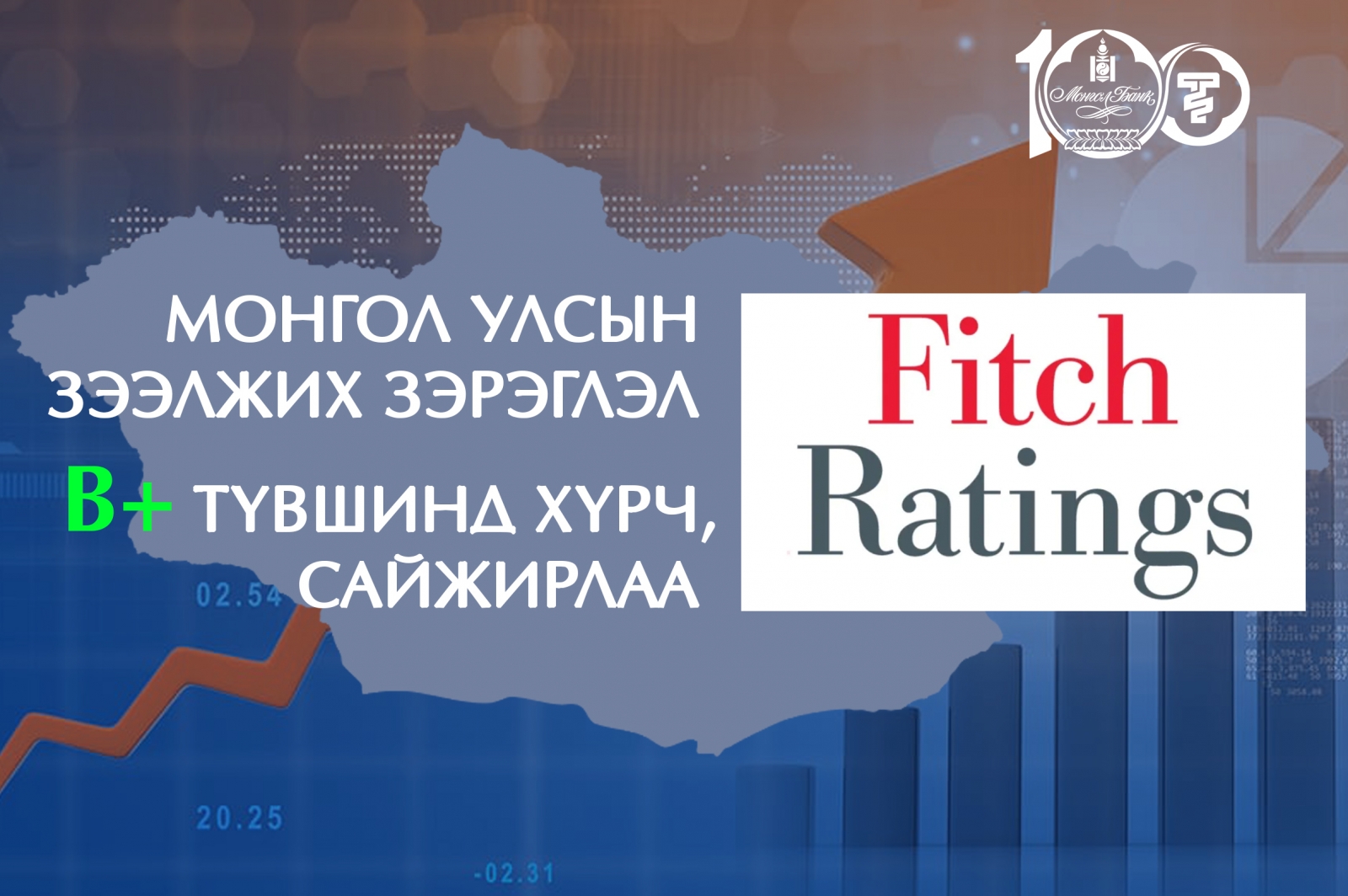Fitch Ratings have upgraded Mongolia’s credit rating to “B+”

On September 18, 2024, Fitch Ratings announced that it had upgraded Mongolia's credit rating from "B+" to "Stable." The Fitch Ratings downgraded the country's rating from "B+" to "B" in 2015, and this marks the first time it has increased the rating back to "B+" since then.
It has been noted that several key factors contributed to the improvement of Mongolia's credit rating, including:
Reserves amid a booming mining sector: Stronger-than-expected growth in the mining industry and a reduced external debt burden for the public sector were the primary factors behind the credit rating upgrade. While Mongolia remains highly dependent on external conditions, its ability to withstand economic risks has improved due to increased foreign currency reserves, reduced foreign debt levels, and a more flexible repayment schedule. Additionally, following the parliamentary elections, policy uncertainty has diminished.
Growth driven by the mining sector: According to Fitch Ratings, Mongolia's economy is projected to grow by an average of 6% from 2024 to 2026, driven by coal and copper mining growth and expansion in the non-mining sector. This is 2 percentage points higher than the average for other countries with a "B" credit rating. Operations at the Oyu Tolgoi underground mine began in March 2023, and production is expected to ramp up starting in 2025. Additionally, domestic demand is rising due to the expansionary fiscal policy. Other mining and infrastructure projects are anticipated to boost economic growth in the medium term.
The budget deficit is low: According to Fitch, the budget is expected to be relatively balanced in 2024, although an average deficit of 3% is estimated in 2025-2026. This figure is roughly in line with the average of other countries with a "B" rating.
Rapid expansion of the budget: The government estimates that budget revenues will increase by 26% and budget expenditures by 36% in 2024. Compared to the revised figures for 2024, budget revenues are projected to increase by 20% and expenditures by 17% in 2025.
Debt levels have stabilized, and there are no outstanding repayments: Government debt, which has been declining rapidly in recent years, is expected to stabilize at around 44% of GDP starting in 2024. The new budget rules establish a debt ceiling expressed as a percentage of nominal GDP, allow for continued use of subsidized credit financing, and mandate annual payments on external debt equal to 2% of GDP from budget revenues. Repayments of $400 million are scheduled for 2025, followed by $1 billion in 2026.
Government Savings: The Government has generated savings equivalent to 10% of GDP. Most of these savings come from the Future Heritage Fund and Fiscal Stabilization Fund, which enhance the reserves of the Central Bank.
The current account balance and foreign currency reserves have both increased: According to Fitch Ratings, the current account deficit is expected to reach 6% of GDP in 2024 and 7% of GDP in 2025-2026, driven by the effects of domestic demand. This is high compared to other countries with a "B" rating; however, this deficit is expected to be offset by foreign direct investment. As the current account turned positive in 2023, the Bank of Mongolia increased its foreign exchange reserves reaching $4.8 billion as of August.
Cyclical expansion policy: In 2024, the deficit of the non-mining budget balance is projected to rise to 10% of non-mining gross value added increasing to 13% in 2025. Despite the budget expansion and rapid increase in lending, the Bank of Mongolia lowered the interest rate to 10% in September. The Bank of Mongolia is raising reserve requirements and implementing other macroprudential policies. Fitch expects inflation to remain within the upper limit of the Bank of Mongolia's target of 8%.
Structural parameters are favorable: Mongolia's governance indicators from the World Bank are strong. As a result of growth in the mining sector, GDP per capita has risen and is now higher than that of other countries with a “B” rating. Although the Mongolian People's Party received the most votes in the State Congress elections and formed a coalition government, it is expected that the government's policies will continue as usual.
